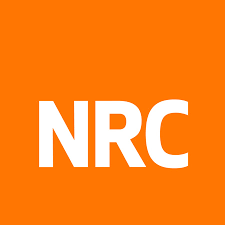Job description
Wash Team Leader
- Role and responsibilities
The WASH Team Leader leads the management of Water, Sanitation, and Hygiene (WASH) programs within his/her respective camp, conducting needs assessments, designing and overseeing infrastructure projects (water systems, sanitation facilities), ensuring technical quality and compliance with SPHERE/UNHCR/NRC standards. The successful candidate is also expected to manage budgets and resources, preparing workplans and donor reports, and representing the organization in relevant coordination forums.
Responsibilities
Program Management
- Contribute to the development of the camp-wide WASH strategy, ensuring alignment with donor requirements, and transition/resilience frameworks/strategies.
- Conduct needs assessments by identifying the gaps, challenges (bottlenecks) and needs, and correspondingly design context-appropriate responses (hardware/software)
- Oversee WASH activities’ planning, budgeting, procurement, and resource allocation to ensure timely and cost-effective project delivery.
- Manage project documentation, contracts, and tender processes for WASH infrastructure (e.g., water systems, sanitation facilities).
- Prepare and submit high-quality donor reports (e.g., UNHCR), and deliverables.
- Plan and lead the design, installation, operation, and maintenance of electrical and mechanical, piping, water treatment systems, and sanitation to ensure WASH infrastructure operating efficiency and sustainability.
- Ensure timely procurement of essential tools, spare parts, equipment, and chemicals by helping officers prepare bills of quantities and technical specifications (including part numbers, quantities).
- Develop design drawings, specifications, bills of quantities and other related technical documentations for WASH infrastructure developments/Rehabilitations.
- Ensure the proper and efficient use of the WASH inventories, tools and spare parts in his/her respective camp
- Audit fuel consumption, and equipment performance by developing tracking and monitory systems and mechanisms (Manuals, checklists, Excel sheets).
- Ensure all WASH activities meet SPHERE, UNHCR, and NRC technical standards, prioritizing sustainability.
- Implement robust Monitoring, Evaluation, and Learning (MEL) frameworks to track progress, manage risks, and adapt.
- Supervise construction of water/sanitation infrastructure (e.g., boreholes, water treatment systems) and hygiene promotion activities.
- Ensure systems for long-term operation/maintenance of WASH assets, including transfer of key skills capacities to local communities.
- Enforce compliance with donor regulations and internal controls.
- Prepare and submit donor reports (e.g., UNHCR), and deliverables.
Coordination and representation
- Serve as NRC’s primary WASH representative in cluster meetings (UNHCR, RRS), liaising with authorities, NGOs, and host communities.
- Foster partnerships with stakeholders (e.g., local government, UN agencies, INGOs) to ensure coordination, advocacy, and program coherence.
- Proactively sharing context updates, challenges, and opportunities with relevant internal and external bodies.
Financial and Resource Management
- Oversee project budgets and ensure resource optimization.
- Ensure efficient procurement processes and accountable use of WASH assets and inventories.
- Identify funding gaps and contribute to proposal development for new opportunities.
Team Leadership and Capacity building
- Line-manage WASH field staff, including performance management, objective setting, and conflict resolution.
- Conduct capacity needs assessments, and deliver tailored training and skill development
- Promote a positive team environment, wellbeing, and professional development
Skills and qualifications
- Competencies
1. Professional competencies:
- Bachelor’s/master’s degree in Hydraulic Engineering, Civil Engineering, Environmental Engineering, Hydrology, or related field.
- Minimum 5 years in humanitarian WASH programs, including 2+ years in leadership roles.
- Proven experience in WASH programs (hardware: water/sanitation infrastructure; software: hygiene promotion/behavior change).
- Expertise in SPHERE standards, donor compliance (e.g., UNHCR), and contract management.
- Experience in refugee settings and complex volatile environments.
- Fluency in English (written/verbal).
- Knowledge of local language (Somali).
- Experience in Dollo Ado contexts.
- Knowledge and experience water supply and treatment systems design and operation
- Experience in Solar water pumping systems
- Skills in AutoCAD/WaterCAD, GIS, COMPASS
2. Behavioral competencies
The following NRC’s competencies are essential for this position:
- Managing resources and achieving results
- Handling insecure environments
- Communicating with impact and respect
- Working with people
- Coping with change
- Planning and delivering results.
- Managing performance and developing teams.
- Strategic thinking and problem-solving.
- Empowering others and building trust.
Attachments
How to apply
https://ekum.fa.em2.oraclecloud.com/hcmUI/CandidateExperience/en/sites/CX_2019/job/18396?keyword=Wash+Team+Leader+Ethiopia+Dollo+Ado&mode=location


